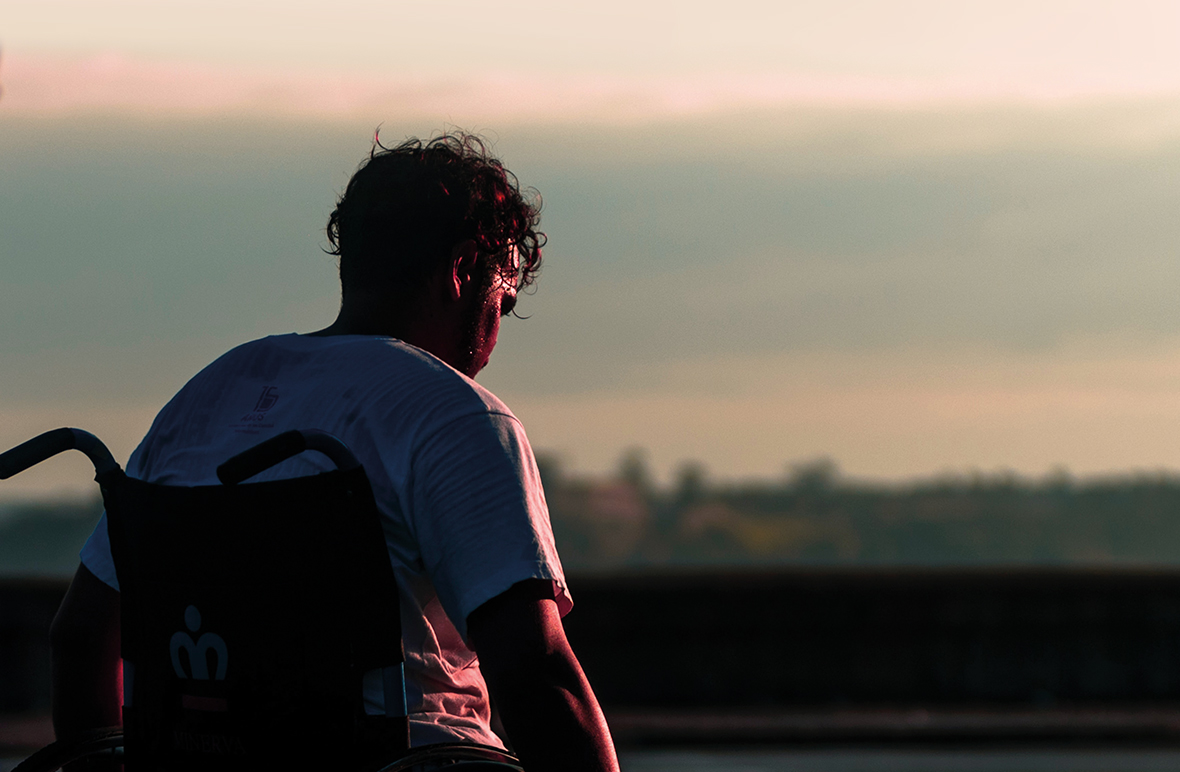Carly Findlay is an award-winning writer, speaker and appearance advocate. A regular on Australian television screens, she is a Medal of the Order of Australia recipient and has twice been recognised as one of the country’s most influential women.
Yet even her high public profile is not sufficient to shield her from being treated badly because of her personal characteristics. In recent years, Findlay, who lives with the rare skin condition ichthyosis, has spoken many times about being discriminated against by taxi drivers because of the way she looks.
After the latest incident in May, she shared a social media post with over 20,000 of her followers which covered her dejection, as well as the lack of empathy and action shown from the taxi companies and industry regulator in response to her formal reporting of the incident.
“I feel disbelieved, dismissed and despondent,” she wrote in her post. “Especially given I have made dozens of prior complaints to taxi companies and the regulator; appeared in a driver training video; been to the Human Rights Commission and taken these incidents to the media.
What more do I need to do to ensure I get home safely?” But it’s not just in Australia where those living with disability are being discriminated against. Recently, Becca Meyers, a six-time Paralympic medallist, withdrew from Team USA after being told that she could not bring her mother and Personal Care Assistant (PCA) to Tokyo to help her navigate the Olympic facilities.
Meyers, who was born with a rare genetic disorder called Usher syndrome, has been deaf since birth and has progressively lost her eyesight. She requires a PCA to support her at the highest level and to complete day-to-day tasks like navigating the bus system, accessing venues and eating at the dining hall while at events. The decision to not allow her to bring her PCA, she told American news outlets, left her feeling “worthless as a person”.
How prevalent is the problem?
The Australian Institute of Health and Welfare (AIHW) says discrimination happens when a person, or group of people, is treated less favourably than others because of their background or personal characteristics.It can include everything from refusing a patron entry to a café because they have a guide dog or reducing an employee’s hours because they suddenly find themselves living with disability, to difficulties facing access to buildings or facilities.
A person unable to participate in everyday activities, or who avoids situations, may be at higher risk of adverse outcomes, including social isolation, unemployment and poor health.
What are the sources of discrimination?
The Disability Discrimination Act 1992 covers people who have temporary and permanent disabilities; physical, intellectual, sensory, neurological, learning and psychosocial disabilities; diseases or illnesses; physical disfigurement; medical conditions; and work-related injuries. It even extends to disabilities that people have had in the past and potential future disabilities, as well as disabilities that people are assumed to have.What’s being done to address the problem?
In 2019, the Disability Royal Commission (DRC) was established in response to community concern about widespread reports of violence against, and the neglect, abuse and exploitation of, people with disability. Its interim report found people with disability routinely experience being called ‘inferior’, ‘a burden’, or ‘a menace’.
What to do if you feel you have been discriminated against:
- Write things down when they happen or as soon as you can afterwards. Record times, dates, names and what people said or did. This can be used to support your complaint.
- Try to stay calm. Being treated unfairly can be upsetting but try not to talk to anyone involved when you are angry or distressed.
- Ask for help. Confronting someone about a discrimination problem is hard to do on your own. It might be easier if you have a friend, relative or support person there with you.
- Keep a copy of any letters or emails you send or receive and don’t discard any other relevant paperwork.
- Community legal centres are non-government community-based organisations that can provide free legal advice about discrimination.
- There are time limits that apply to starting legal action. If you want to try non-legal options but you’re getting close to the deadline, you can start legal action and then ask for it to be put on hold while you keep trying the non-legal options.
Source: Legal Aid NSW
You can also visit the Australian Government’s Disability Gateway Advocacy page, where you can find more information about local advocacy groups, advice on how to advocate, links to Local Area Coordinators (LACs) and help with NDIS appeals. Visit https://www.disabilitygateway.gov.au/legal/advocacy




